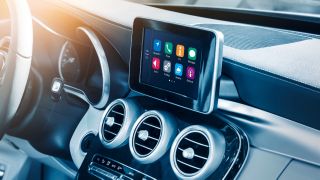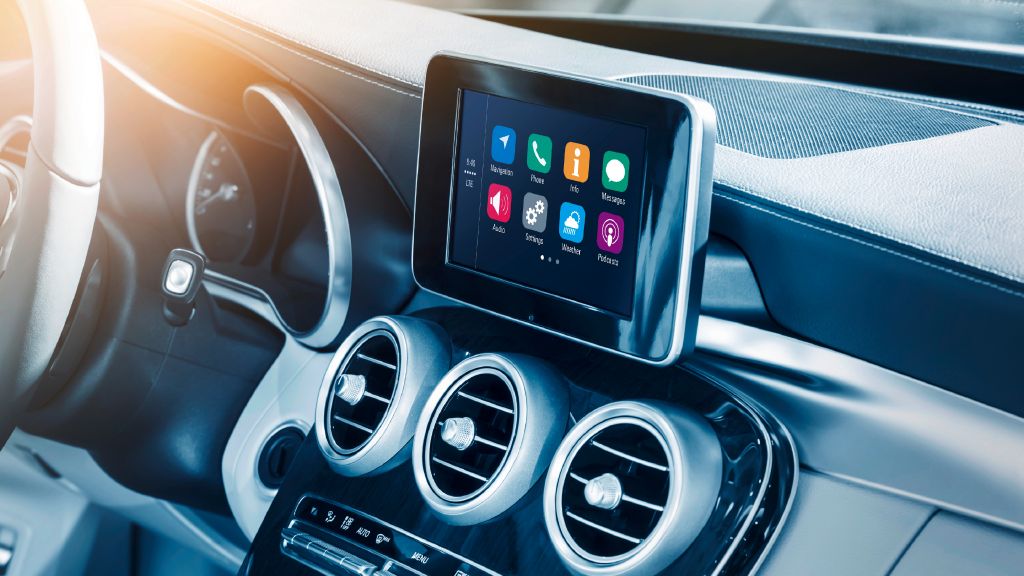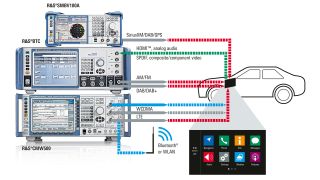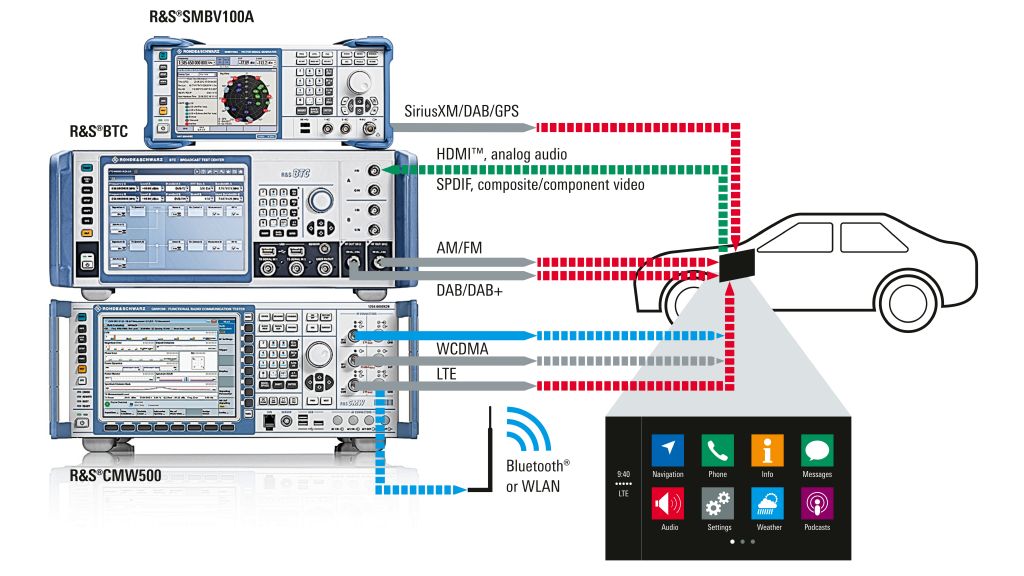Functionality testing of automotive infotainment devices
Automotive Infotainment Testing

Automotive Infotainment Testing


Modern day vehicle interactivity takes place on the centrally placed touchscreen head unit display (HUD) on the car dashboard. Infotainment systems have become a central hub for a wide range of vehicular functionality.
These systems provide driver entertainment and information by integrating different functions. Examples include in-vehicle connectivity with wireless devices (e.g. Bluetooth® or WLAN hotspot for audio and smartphones) and connecting with external communications, transmission, radio and satellite network providers.
All of this is on top of a multitude of multimedia that include analog AM/FM radio, digital radio, analog/digital TV, GPS data for navigational systems, communications services (over 3G, 4G or WLAN) and digital satellite audio reception.
To serve their customer base, automakers and Tier 1s must test and validate all systems and functions to ensure safety, IP connection security and performance. Since the car is moving, the infotainment system has to deal with complex and variable fading scenarios. Functionality of the communications and broadcast features needs to be tested in a simulated real-world environment in the lab.
Different regional standards drive up the complexity of compliance and the need for sophisticated designs to allow seamless functionality. Additionally, infotainment system software is developed and changed frequently as more features are implemented. A key task for the development teams is to ensure that software changes do not adversely affect other functions.
Rohde & Schwarz offers state-of-the-art test and measurement instruments for performing comprehensive and accurate functionality tests on infotainment devices. The proposed solution includes the R&S®CMW500 wideband radio communication tester, the R&S®BTC broadcast test center and the R&S®SMBV100A vector signal generator. The instruments may be used in combination or individually.
The R&S®BTC is used to generate audio and video signals such as AM, FM, DAB/DAB+, HD Radio™, DVB-T/DVB-T2, ATSC, CMMB and SiriusXM Radio. The R&S®CMW500 is used to generate Bluetooth®, WLAN, WCDMA/HSPA and LTE radio signals. The R&S®SMBV100A simulates GNSS signals such as GPS, GLONASS, BeiDou and Galileo. By combining the R&S®CMW500 and the R&S®SMBV100A, Rohde & Schwarz offers a compact solution for automated, reliable and reproducible end-to-end conformance tests on eCall/ERA-GLONASS modules independent of the realworld network.
The output ports of the test instruments are connected directly or via DC blocker to the antenna ports of the DUT. Typically, the Bluetooth® and WLAN antennas on the DUT are not accessible. The Bluetooth® and WLAN signaling from the R&S®CMW can be fed over the air using an appropriate antenna. The same applies if testing should include any peripheral active antennas or filter sub systems. To perform video or audio quality testing, the DUT’s HDMI™ or analog output connects to the R&S®BTC for detailed audio and video analysis.
R&S®CMW500 wideband radio communication tester
R&S®BTC broadcast test center
R&S®SMBV100A vector signal generator


Functionality testing on infotainment devices